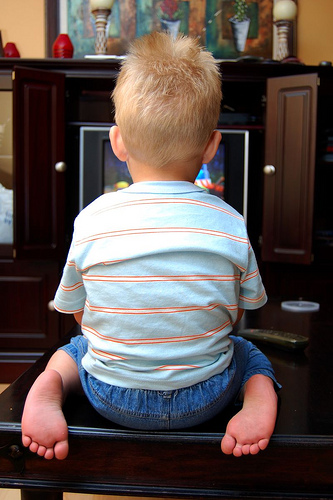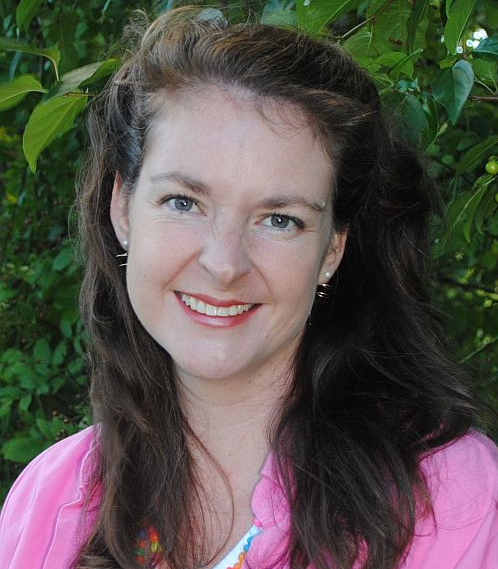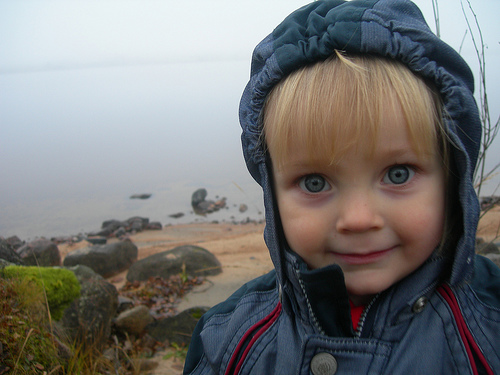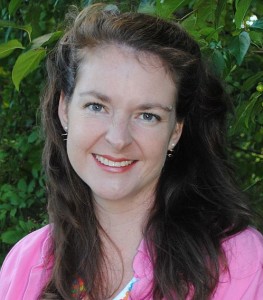Below is a re-post of a piece I wrote for TV-Turnoff Week about my family’s experience pulling the plug many years ago. In recent years, TV-Turnoff Week has evolved into “Screen-Free Week.”
From the Screen-Free Week‘s website:
Screen-Free Week is an annual celebration where children, families, schools, and communities turn off screens and turn on life. Instead of relying on screens for entertainment, participants read, daydream, explore, enjoy nature, and enjoy spending time with family and friends.
Since we rarely watch TV, the challenge for us this year will be turning off our computers! Impossible for me now that I own an internet business. But eager to participate, I am committing to no Facebook, Twitter or recreational use of the computer for the week.
I hope my story will inspire you to join me!
TV-TURNOFF WEEK: PULLING THE PLUG
Twenty years ago, I was a young mother living in Hollywood, the media capital of the world. My husband Max worked in the entertainment industry, and I had been an actress prior to my son Harper’s birth. We were a family immersed in the culture of media.
During Harper’s early years, I was clueless about the effect of media on young children. I never questioned the effect of TV viewing on his developing brain. After all, he only watched “educational” shows on PBS and family-friendly videos, like Disney movies. He loved them! What could be wrong with that?
When he was four years old, I visited the Pasadena Waldorf School and became enchanted by what I saw. Intuitively, I knew that this was a healthy environment for children. I began to research and to learn as much about Waldorf education as I could.
I learned that Waldorf educators strongly discouraged TV and electronic media viewing by young children. This was a novel idea to me, but as I read more about the effect of media on children’s brain development, I started questioning the wisdom of continuing to allow Harper to sit in front of a screen for hours a day. But how, I wondered, would I get through my days without the electronic babysitter? How would I get dinner made? How would I take a shower? It didn’t help that Max was not convinced that TV, in moderation, was a harmful thing.
In April of that year, I learned about TV-Turnoff Week—a week in April during which families are encouraged to turn off their TVs for a week. I decided to give it a try to see if we could survive a week with no TV. At the beginning of the week, I shut the doors to the TV cabinet and hid the remote.
I would be lying if I said it was easy. Harper and I both experienced withdrawal symptoms. On the first couple of days, Harper would ask for Sesame Street and Mr. Rogers. Why, he pleaded, couldn’t he watch Peter Pan? I told him the TV was “resting” for a few days, and endured his whining with resolve. Silently, I wondered if I would last the week, feeling like he suddenly needed my constant attention. It was so much easier make dinner and straighten the house when I could just pop in Mary Poppins.
During the week, I decided to invest in some new art supplies. I bought stacks of drawing paper, and new sets of beeswax crayons and colored pencils. Then by day four, I witnessed a miracle. The whining stopped. I watched in awe as Harper became engrossed in drawing. Almost overnight, I saw his drawings transform from immature scribbles into representational images. Suddenly he was drawing pictures of pirate ships, castles, knights and dragons. He would sit at the little table in his room and draw picture after picture. Prior to this, I didn’t think he had the capacity to sit and focus for so long.
The drawing continued through long periods during days five and six. I could prepare dinner again while he was happily occupied, with the TV still hidden in the dark cabinet. I wouldn’t have believed it possible! When he wasn’t drawing, he became more interested in building with blocks and playing with puzzles.
I never anticipated such a dramatic change in only a week. By day seven, both my husband and I were convinced that there was no good reason to turn the TV back on. As Max said by the end of the week, “I guess it certainly couldn’t hurt to live without TV.”
We never threw our TV away, though many times I wished we could! Max continued to write about media and could not give up being able to watch World Series baseball. But it stayed turned off most of the time while my two boys were growing up. Though they often complained and questioned why we didn’t watch TV like other families did, Harper has, on more than one occasion, thanked me for not allowing them to watch when they were younger. As teenagers, they watch TV occasionally and enjoy it, but I am convinced that not having spent their childhoods parked in front of screens allowed them to become the creative and resourceful young adults they are now.
Incidentally, Harper has decided to return to his Hollywood roots and is now a college freshman studying filmmaking.

Screen-Free Week 2017 is May 1-7.
For more information, help and encouragement:
Will your family commit to participating in Screen-Free Week this year? Share your challenges and successes here!








